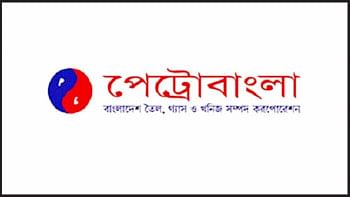<i>Out with the lonely warrior </i>
He debatably took up the most challenging job in a graft-riddled country -- to catch the big time corrupts -- and he did it with due diligence. But everybody could feel that his time was up as soon as the elections were held.
Lt Gen (rtd) Hasan Mashhud Chowdhury, who just resigned as the chief of the Anti-corruption Commission, did not look at party affiliation in his graft busting actions. He cast his net wide -- and many would say he cast it too wide indeed -- to press charges against the top politicians.
His actions Mashhud travelled widely across the country to create awareness against corruption and talked boldly against the corrupt instilled a sense of fear in the corrupt nexus. A general indication of it was the record filing of tax returns during the tenure of the caretaker government's two years. But then, a criticism against him was that along with gunning for the bigwigs, he unnecessarily barked up some wrong trees too. Small time traders and professionals were also scared in the course of time.
Despite that Mashhud had enjoyed broad support. After all, poverty eats up 2-3 percent of the country's GDP a year, and the exhibits of sinfully glitzy lifestyles of the corrupt had evoked a deep resent for the 'business-as-usual' approach to plundering of national wealth.
In an interview with The Daily Star at the end of November in 2008, the ACC boss said that the commission dealt with over 1,100 cases since February 2007 after his takeover.
In another interview with the same newspaper in end-January this year, Mashhud said, “What bothers me most at this time is that the number of cases in which we got verdict is only 10 percent of the cases filed. If we had initiated 100 cases, we got verdict only in 10 cases in the last two years. So, we have to have a better mechanism for disposal of more cases -- at least at the trial court level. And that is a time-consuming process.”
Mashhud's success could be termed mixed as things got stuck in courts. According to the ACC's annual report, it has filed 384 cases until June 2008. Other organisations such as police have filed 710 cases, which are being pursued by the ACC. Among these, 643 cases were in the process of investigation, chargesheets of 156 have been submitted and about 17 are being processed. Writ petitions have been filed against 265 cases. Some 314 people were asked to submit their wealth statements of whom 273 have submitted the same while 32 did not comply who are mostly in hiding.
The corruption cases ACC filed are against political bigwigs, who are mostly from BNP.
One of the peak challenge for Mashhud was dealing with corruption allegations against the two former prime ministers Sheikh Hasina, Khaleda Zia and two of her sons ---Tarique Rahman and Arafat Rahman Koko.
But on occasions the commission had to compromise about the drive against some bigwig politicians when the question of holding election became the prime concern last year.
Mashhud also had to face the big challenge of running the anti-graft drive by absorbing the staffs from defunct Bureau of Anti-Corruption, who were known as mostly corrupt and unskilled to deal grand corruption.
Even many of the staffs were not comfortable to work under Mashhud's management.
During the regime of caretaker government National Coordination Committee (NCC) to combat crime and corruption had been always a help to the anti-graft body in investigating an allegation against corruption accused.
After NCC was dissolved in December last year the ACC felt the necessity of getting help from external experts and recommended inclusion of a provision in the ACC Act to allow the commission to form a temporary team of experts from the defence and other government institutions.
The recommendations were sent to the cabinet for approval this year, but it was sent back to ACC for further review.
With the coming of a political government in power after the December 29, 2008 general elections, ACC's activities almost stalled and there was a palpable sense of frustration among the ACC officials.
Since then it only dealt with two cases filing of a money laundering case against Arafat Rahman Koko, younger son of former prime minister Khaleda Zia, and issuing a notice to submit wealth statement to Syed Iskander, brother of Khaleda.
All the persons who were accused or sentenced in graft cases filed by the ACC ultimately came out of jails on bail. And many of the convicts and accused who were on the run since the anti-graft drive by the past caretaker government are now back in the country. Many of the accused and convicts also participated in elections.
And finally, it was evident that Mashhud, who fell out of favour with politicians of both camps -- AL and BNP -- and of a certain quarter of the business community had become a lonely warrior.
It was then that a sense of frustration crept into public minds and the apprehension about the fate of the anti-graft drive grew larger. With the exit of the ACC boss, this fear got a further boost.

 For all latest news, follow The Daily Star's Google News channel.
For all latest news, follow The Daily Star's Google News channel. 



Comments